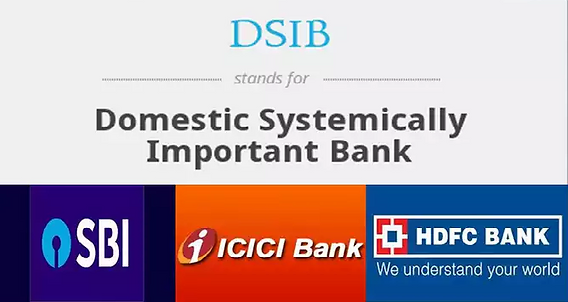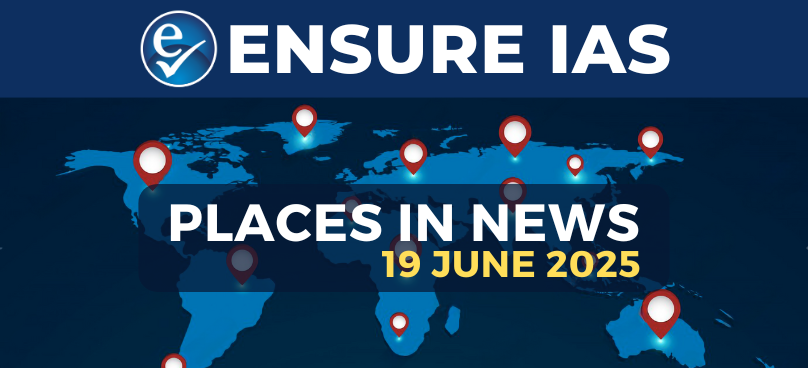- Courses
- GS Full Course 1 Year
- GS Full Course 2 Year
- GS Full Course 3 Year
- GS Full Course Till Selection
- Answer Alpha: Mains 2025 Mentorship
- MEP (Mains Enrichment Programme) Data, Facts
- Essay Target – 150+ Marks
- Online Program
- GS Recorded Course
- Polity
- Geography
- Economy
- Ancient, Medieval and Art & Culture AMAC
- Modern India, Post Independence & World History
- Environment
- Governance
- Science & Technology
- International Relations and Internal Security
- Disaster Management
- Ethics
- NCERT Current Affairs
- Indian Society and Social Issue
- NCERT- Science and Technology
- NCERT - Geography
- NCERT - Ancient History
- NCERT- World History
- NCERT Modern History
- CSAT
- 5 LAYERED ARJUNA Mentorship
- Public Administration Optional
- ABOUT US
- OUR TOPPERS
- TEST SERIES
- FREE STUDY MATERIAL
- VIDEOS
- CONTACT US
Domestic Systemically Important Banks (D-SIBs)
Domestic Systemically Important Banks (D-SIBs)

- In November 2024, The Reserve Bank of India (RBI) confirmed that State Bank of India (SBI), HDFC Bank, and ICICI Bank will continue to be listed as Domestic Systemically Important Banks (D-SIBs).
- These banks are in the same category (or bucket) as the 2023 list of D-SIBs.
- This means their importance to the economy remains unchanged.
What Are D-SIBs?
- Systemically Important Banks (SIBs) are banks whose failure or problems could harm the economy.
- They are also called "Too Big To Fail (TBTF)" because their failure could disrupt the financial system and impact many people.
- These banks provide essential services that are important for the economy to run smoothly.
List of D-SIBs:
For the year 2024, the following banks are considered D-SIBs:
- State Bank of India (SBI)
- HDFC Bank
- ICICI Bank
The RBI has been classifying these banks since the mid-2010s:
- SBI: Classified as a D-SIB in 2015.
- ICICI Bank: Classified as a D-SIB in 2016.
- HDFC Bank: Classified as a D-SIB in 2017.
These banks are in the same "bucket" as in the 2023 list, meaning their role in the economy is still significant.
Why Are D-SIBs Important?
Some banks become very important because:
- Size: They are very large and handle huge amounts of money.
- Complexity: They offer a wide range of services, making them harder to replace.
- Cross-border Activities: They operate in many regions or countries.
- Interconnectedness: Their failure could affect many other parts of the economy.
If a D-SIB fails, it can cause disruption in the financial system and hurt the economy. For this reason, D-SIBs are seen as "Too Big To Fail" (TBTF). This means people expect the government to step in if these banks face a crisis.
Risks of TBTF Banks:
While the government’s help can prevent a crisis, it also causes problems:
- Banks may take bigger risks, thinking they will be saved by the government.
- Investors and the public might not worry about the bank's mistakes.
- Because of this, the chances of the bank getting into trouble again increase.
Buckets for D-SIBs:
To decide how risky each D-SIB is, the RBI places them in different buckets. Each bucket determines how much extra capital (money) the bank must hold to protect itself from losses.
- Bucket 4: The most important banks (highest extra capital required).
- Bucket 3: Moderately important banks.
- Bucket 1: Less important banks.
For 2024, the banks are placed in the following buckets:
- SBI: Bucket 4 (Most important, needs higher capital).
- HDFC Bank: Bucket 3.
- ICICI Bank: Bucket 1.
Capital Requirements:
Each bucket means the bank needs to keep extra money (capital) in case of trouble. This extra capital is based on the Risk-Weighted Assets (RWAs) of the bank.
- SBI: Needs an additional 0.80% of RWAs.
- HDFC Bank: Needs an additional 0.40% of RWAs.
- ICICI Bank: Needs an additional 0.20% of RWAs.
From April 1, 2025, SBI and HDFC Bank will need to keep more capital:
- SBI: Additional 0.80%.
- HDFC Bank: Additional 0.60%.
How Are D-SIBs Selected?
The RBI follows a two-step process to decide which banks should be D-SIBs:
- Step 1: Selecting Banks for Study: Not all banks are studied. Only the larger banks (those whose size is more than 2% of the country’s GDP) are considered.
- Step 2: Assessing Importance: The RBI looks at a range of factors, such as:
- Size: The bank’s size compared to the country’s economy.
- Interconnectedness: How connected the bank is to other financial institutions.
- Complexity: How complex and wide the bank’s operations are.
- Substitutability: How easily its services could be replaced by other banks.
Banks that score high on these factors are classified as D-SIBs and placed into different buckets based on their importance.
What is Global Systemically Important Banks (G-SIBs) ?
In addition to D-SIBs, there are Global Systemically Important Banks (G-SIBs). These banks are so important that their failure could affect the entire world economy.
Some well-known G-SIBs are:
- JP Morgan Chase (USA)
- Bank of America (USA)
- Citigroup (USA)
- HSBC (UK)
- Barclays (UK)
- BNP Paribas (France)
These banks are assessed globally, with a focus on their operations across multiple countries.
Conclusion:
D-SIBs like SBI, HDFC Bank, and ICICI Bank are vital to India’s economy. Their failure could cause serious problems in the financial system. To make sure they stay stable, the RBI requires them to hold extra capital. This helps reduce risks and ensures that these large banks can continue operating smoothly, even in times of financial stress.
The D-SIB framework is important for managing the risks of these large banks while keeping the overall financial system safe.




